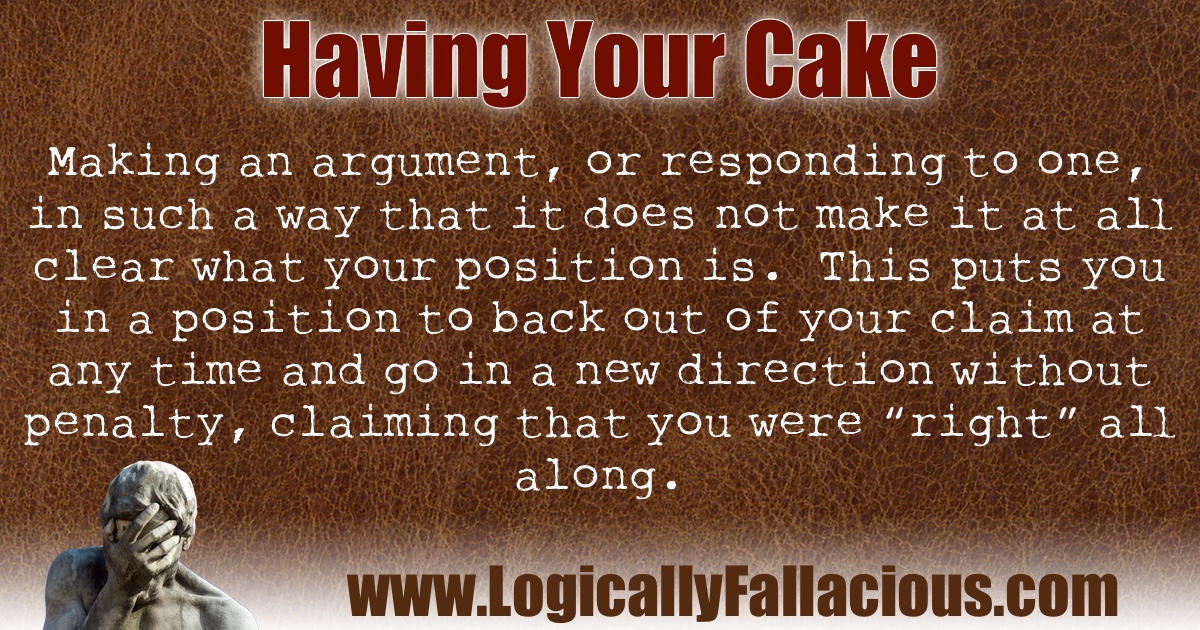(also known as: failure to assert, diminished claim, failure to choose sides)
Description: Making an argument, or responding to one, in such a way that it does not make it at all clear what your position is. This puts you in a position to back out of your claim at any time and go in a new direction without penalty, claiming that you were “right” all along.
Logical Form:
I believe X is a strong argument.
Y is also a very strong argument.
Example #1:
Reporter: Mr. Congressman, where do you stand on the clean water vs. new factory issue?
Congressman: Of course, I want our state to have the cleanest water possible. I can appreciate the petition against the new factory as I can also appreciate the new jobs introduced in our community as a result of the new factory.
Explanation: This type of “non-decision” or refusal to choose a side often eludes those looking for an answer but getting more of a non-answer in return. In our example, the congressman can later choose a side based on the outcome, looking like the guy who knew the right answer all along.
Example #2:
Scott: So do you think the earth has only been here for 6-10 thousand years?
Sam: The evidence for an old earth is very strong, but we cannot discount some of the claims made by the creationists.
Scott: So what are you saying?
Sam: I am saying that a 4.7 billion-year-old earth makes a lot of sense, but the 6000-year-old theory does, as well.
Explanation: We all know and want to shoot people like Sam. Sam is failing to assert his position. If Sam’s opinion is respected in this area, no doubt people on both sides will use his statement to their advantage. This ambiguity is not helpful and is misleading.
Exception: Wishy-washy statements are sometimes acceptable to demonstrate your uncertainty on a given issue, and if these kinds of statements are followed with admissions of uncertainty or ignorance, then they are not fallacious; they are honest.
Tip: If you don’t have an opinion, say that you don’t have an opinion. If you don’t know, say that you don’t know. It’s that simple.

This a logical fallacy frequently used on the Internet. No academic sources could be found.